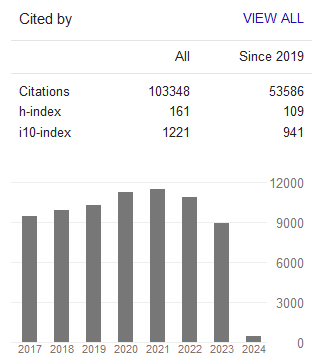Electoral Results: Can Entropy be a Measure of the Population Dissatisfaction?
- Paulo Ferreira
- Andreia Dionísio
Abstract
This paper intends to explore the utilization of entropy through politics and election results, a slightly explored
area. It generalizes the interpretation of entropy, considering it a measure of dissatisfaction and disillusion of
populations in what concerns to politics. We can detect and analyze some phenomena, such as the increase of
abstention in a country, a consequence of the dissatisfaction of the population and their alienation related to
politics. New political parties can emerge due to the discontentment of the populations, leading to a larger
division of votes and to the increase of the entropy (as a result of the discontentment and uncertainty of the
electors). Absolute majorities imply less dispersion of votes and are a synonym of a higher confidence in a
particular party, reducing entropy. Electoral results can also be influenced by particular phenomena, such as the
terrorist attacks on the eve of the two last elections in Spain. These attacks had a great influence on the affluence
to the polls, as well as on the levels of entropy.
- Full Text:
 PDF
PDF
- DOI:10.5539/ijbm.v7n4p2
Journal Metrics
Google-based Impact Factor (2023): 0.86
h-index(2023): 152
i10-index(2023): 1168

Index
- Academic Journals Database
- AIDEA list (Italian Academy of Business Administration)
- ANVUR (Italian National Agency for the Evaluation of Universities and Research Institutes)
- Berkeley Library
- CNKI Scholar
- COPAC
- EBSCOhost
- Electronic Journals Library
- Elektronische Zeitschriftenbibliothek (EZB)
- EuroPub Database
- Excellence in Research for Australia (ERA)
- Genamics JournalSeek
- GETIT@YALE (Yale University Library)
- IBZ Online
- JournalTOCs
- Library and Archives Canada
- LOCKSS
- MIAR
- National Library of Australia
- Norwegian Centre for Research Data (NSD)
- PKP Open Archives Harvester
- Publons
- Qualis/CAPES
- RePEc
- ROAD
- Scilit
- SHERPA/RoMEO
- Standard Periodical Directory
- Universe Digital Library
- UoS Library
- WorldCat
- ZBW-German National Library of Economics
Contact
- Stephen LeeEditorial Assistant
- ijbm@ccsenet.org
